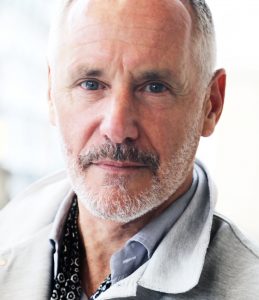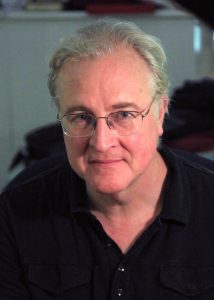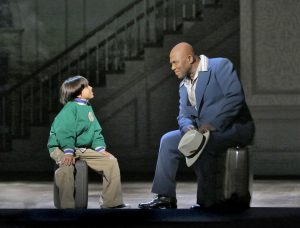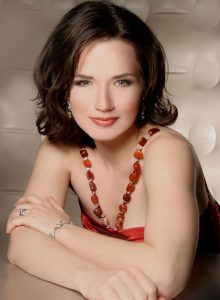This is an updated version of an article that appeared in The Independent in early 2020, shortly before the Lyric Opera had to postpone its production of The Shining: which it will now present this March. —P.H.
.

Production photos: Minnesota Opera
The most terrifying thing on earth is the human heart. Thus the scariest parts of any horror story are not ghosts or spirits that come from “out there,” but instead the monstrous acts committed by ordinary people.
When it came time to put Stephen King’s The Shining onto the opera stage, its authors found that the 1977 novel packed far more of a gut-punch than Stanley Kubrick’s subsequent film did. Because unlike the Torrances of the movie, Stephen’s original family consists of living, breathing humans with all of their frailties and strengths: three people who love and care deeply for each other.
“In the novel, Jack is a man who has some serious problems,” said librettist Mark Campbell, who together with composer Paul Moravec created The Shining for Minnesota Opera in 2016. “He’s an alcoholic, he has abused his son physically, and we later learn that he himself was abused by his father.” For Mark, who was responsible for Silent Night (which the Lyric Opera of Kansas City performed here in 2015) and dozens of other significant American operas (including The Manchurian Candidate, which again returned to the original novel rather than riff off the film versions), the Jack of the novel is far scarier than Kubrick’s chilly one-dimensional villain.

Mark Campbell / Photo courtesy of the Lyric Opera
“Paul and I were determined to establish Jack Torrance as a real human being who has feelings, and wants to be a good father,” Mark said. “He becomes relatable to an audience, and therefore scarier.”
After a long wait, the Lyric Opera of Kansas City will finally present the Moravec/Campbell version of The Shining, in a production that shares several members of the creative team from Minnesota, including stage director Eric Simonson.
“The reason why, in the horror genre, this novel makes such a good opera is because it’s based in ‘real’ people,” said Eric, who directed Rusalka here in 2015 with much the same team. “The big question is whether this is coming from Jack’s point of view, and if it is, is it real? Or is it just in Jack’s imagination? Are these ghosts real? And because it seems so real it makes it all the more horrifying. … Because watching someone have a mental breakdown is itself a horror story.”
Similarly, Wendy Torrance, who in Kubrick’s film is a bit of a ditz, is a caring mother and wife in the novel. “In the book, she’s a true operatic heroine who will stop at nothing to protect her child,” Mark said, “and who also cares about her husband and wants to get him through this. And that’s what’s missing from the movie, and is so strong in the opera, through Paul’s music.”
Granted, Kubrick’s film creates terror through a sense of cold alienation. “But that won’t work in opera,” Mark said. “We have to make characters sing, and we have to care about them and know that they have emotions, that they have hearts beating inside. You can’t write ‘spiel’: Each character has to have a heart.”

Paul Moravec / Courtesy of the Lyric Opera
Enter Paul Moravec, one of America’s leading composers and a genius at musical drama, who according to the Minnesota Opera team (which also included general director Dale Johnson) was a natural choice. “It’s a very operatic story, everything about it,” said Paul, whose opera The Letter was widely admired at its Santa Fe Opera premiere in 2009 by many in the opera world.
For The Shining, Paul has created a magical sonic world which, together with scenic designs by Erhard Rom, puts us right in the middle of the Overlook Hotel, while also providing “set pieces” that help flesh out the characters.
It helped that Mark and Paul both felt the same way about opera’s need for real melodies, “operatic moments” in which the characters reflect and soar. “I don’t like sung dialogue,” Mark said. “Too much of that is really hard to listen to in opera: It gets boring. So I look for moments in which I can elevate the text, create words that will bring out the operatic moments.”
These powerful melodies are one of the strengths of The Shining, and it’s perhaps significant that two of the strongest arias go to Dick Hallorann, head chef of the Overlook Hotel, a humble characer who ultimately “saves the day” through his ability to communicate with Danny’s “shine” (and who meets a gratuitously abrupt demise in Kubrick’s film).

Dick Hallorann meets Danny
“Basically, Dick Hallorann emerges as the hero of the story,” said Paul, whose closing aria “Shine On,” written for Dick, forms a sort of emotional peak for the opera. It went through several versions, Paul said, because it needed to have just the right balance of emotional and musical expressiveness.
“If you don’t try to have beautiful melodies, if you don’t try to move the audience with gorgeous music, what’s the point?” Paul said. “I mean, it’s opera.” Ultimately a composer has to ask him- or herself: “Why are people singing?” Paul said. “What extreme emotions are giving rise to song? I try not to ever lose sight of that, because it’s important in holding the attention of the audience: and it’s important in overcoming the sort of artificiality of the conventions of opera.”
The Shining as book and as opera contains several noble roles, and although the presence of evil always lurks, Jack and Dick and Wendy and even Danny all possess heroic qualities, even though each responds differently to the hidden demons.

Kelly Kaduce is Wendy / Photo by Kevin Cass
“There’s a lot of conflict and frailty and struggle,” Paul said. But most important, “Jack Torrance is basically a decent guy trying to do the right thing. He becomes a monster later on, and that’s the tragedy and the horror of the thing.”
Jack is “struggling to reconcile two sets of instructions that he’s getting from this supernatural power,” Paul added. “One is to look after his family, which is what a decent guy does, and the other, from the hotel, is telling him to kill his family.”
What could be more operatic than voices in one’s head, a conflict between love and death, heaven and earth in open battle? “I think of opera being about three things,” Paul said. “Love, death and power, and all of those elements are in this opera, on steroids.”
—By Paul Horsley
The Shining appears this March 11th through the 19th at the Kauffman Center for the Performing Arts. For tickets call 816-471-7344 or go to kcopera.org. To reach Paul Horsley, performing arts editor, send an email to paul@kcindependent.com or find him on Facebook (paul.horsley.501) or Twitter/Instagram (@phorsleycritic).